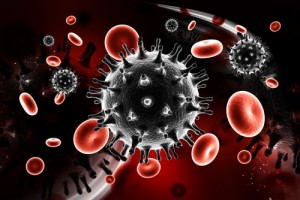 Spanish patients suffering from both HIV and hepatitis C virus (HCV) are more difficult to treat than patients from other ethnic groups, due to their genetics, according to recent research conducted in a clinic in Madrid, Spain and presented at the AASLD/ EASL Special Conference on Hepatitis C, in New York. After performing a retrospective analysis of HIV-positive patients receiving antiretroviral treatment, the researchers recognized the difficulty was related to the patients’ HCV genotype, in addition to other factors.
Spanish patients suffering from both HIV and hepatitis C virus (HCV) are more difficult to treat than patients from other ethnic groups, due to their genetics, according to recent research conducted in a clinic in Madrid, Spain and presented at the AASLD/ EASL Special Conference on Hepatitis C, in New York. After performing a retrospective analysis of HIV-positive patients receiving antiretroviral treatment, the researchers recognized the difficulty was related to the patients’ HCV genotype, in addition to other factors.
The study was conducted for more than six months in order to determine the patients’ health profile as well as the therapies they had been given, and enrolled 161 HIV-HCV connected patients, having tested positive for serum HCV-RNA twice during the study period. Only 30% of the patients were fully cured of HCV, and more than half of them were naive to HCV therapy.
“The current profile of HIV-HCV connected patients in Spain is dominated by particularly difficult-to-cure individuals who do not usually respond to new direct-acting antivirals,” said the researchers in the report. “Current hepatitis C treatment does not seem as successful in coinfected patients. By contrast, HIV status seems to be controlled in most coinfected individuals.”
The researchers concluded that 133 of HIV-HCV coinfected patients were good candidates for direct-acting antivirals (DAA), as well as that 63.8% had HCV genotype 1a. The patients were on average 51 years old, and 78.9% of them were men. The conclusions of the study comprised a part of the data presented at the conference, which gathered specialists from all over the world to discuss the treatment of hepatitis C, as well as global epidemiology, barriers to care, and potential solutions to improve global access to therapy.
HIV and hepatitis C are diseases transmitted trough the same ways, by sharing body fluids through unprotected sex or shared needles, which leads to the contraction of the two diseases simultaneously. More than two-thirds of patients with HIV in Spain also suffer from hepatitis C, according to the national health statistics.

